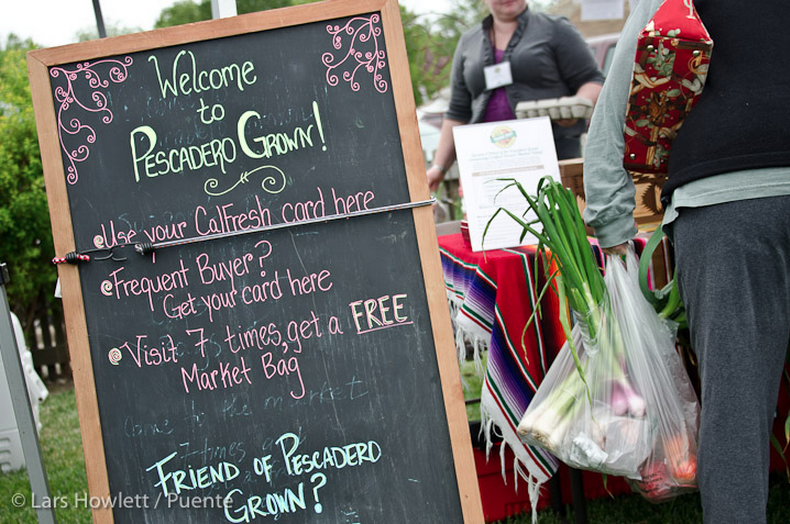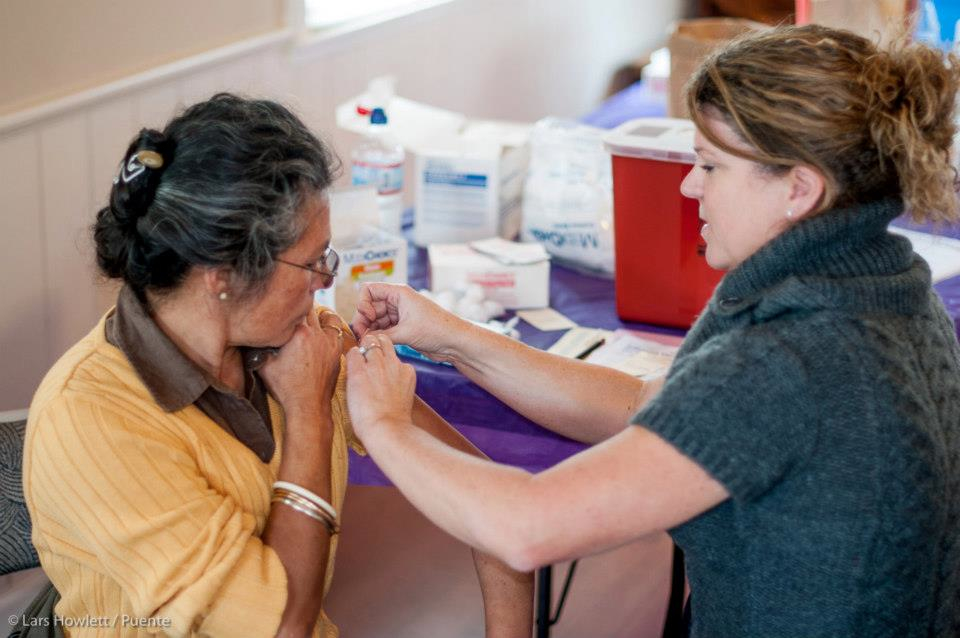One day in 2007, Puente Executive Director Kerry Lobel invited Puente staff and volunteers to her home for a communal brainstorming session. Puente had just merged with North Street Community Services under Lobel’s leadership.
After she seated everyone in her living room, Lobel asked people what Puente’s future ought to look like. What services should it provide? What would it stand for? How would it bring people together?
By the time they were done, the group had filled several walls with notes. They had the seeds for Puente’s next phase.
Those seeds have blossomed into an organization that serves more than 1,500 South Coast residents each year. Today, everyone knows that Puente is the only place to go for everything from ESL and medical insurance, to taxes and substance abuse prevention. Puente touches the lives of families who need rental assistance, helps women with maternal depression, and partners with the YMCA to hold a summer camp for kids who would never be able to afford it.
“We like to say we’re a one-stop shop,” says Lobel.
This year, as Puente celebrates its 15th anniversary, Lobel is taking the opportunity to look ahead to the next 15 years.
Feeding the community
The South Coast’s farming future may belong to small artisanal farms as global competition drives larger farms and nurseries out of production. Keeping local farms in business (and farm workers employed) has become a core tenet of Puente’s commitment to a thriving local economy.
In 2011, Puente launched Pescadero Grown! Farmer’s Markets to connect South Coast farmers with local shoppers – including several discount programs for low-income families, who normally wouldn’t be able to afford local produce.
And Puente has brokered discussions between farmers eager to reach a wider Bay Area audience and outlets that can help them get there.
“A lot of things we’re doing now are things we wouldn’t have imagined doing five years ago, let alone ten. The farmer’s market is a good example,” says Lobel.
Ultimately, Lobel would like to see food take on a prominent role within area schools, by integrating Puente’s Edible After School Program into middle and high school curriculums. And in a shrinking market, the South Coast can use new distribution models to strengthen its cachet as a provider of freshly-grown, nutritious local food.
Health care for all
Lobel calls access to health care “a fundamental human right.” It is a right that many locals lack at present, since the South Coast has no medical care. Without a car, many families do not have the means to travel to a doctor or dentist in Half Moon Bay or even farther away, to hospitals in Redwood City.
As a result, Lobel says that people are forced to live with chronic and serious conditions like diabetes – and only seek medical attention when the symptoms are too painful to ignore. By then, it can be too late.
“What we have now are people who may have had their medical or dental care in Mexico and are not getting it at all,” says Lobel. “By the time people feel bad enough to go to a doctor, their lives are changed forever.”
Puente is deeply committed to securing a sustainable system for health care on the South Coast. Lobel is confident that Puente’s continuing conversations with San Mateo County health officials and with Stanford University’s own clinicians will result in some kind of solution.
It could take the form of a mobile health van like the one the county used to provide. Or it could be something radically different. Either way, Lobel said that she’d look for a public-private funding partnership to give the community some lasting results, as opposed to some temporary measures.
“We’ve learned that if the community isn’t controlling the resources, it doesn’t control the outcome. The community needs to decide what happens,” she says.
Literacy, starting at day one
Despite the wealth of studies linking early childhood development programs to a lifetime of scholastic achievement, the South Coast lacks a comprehensive way to boost the success rate of children in poverty. Many of them lack any English skills or access to learning materials and books.
As a result, some children are already playing catch-up in English and math by the time they enter the local school system. Lobel wants to change that, in close collaboration with the La Honda-Pescadero Unified School District.
The school district currently offers a half-day of preschool for children starting at age 3, but Lobel would like to see that program expand to a full day.
“If we’re ever going to see the education outcome we’ve hoped for, we need to start with 0-2 year-olds,” she says. Puente is committed to working with the school district attract funding to launch program for children ages 0-2, she adds.
The ultimate goal is to prepare every Pescadero High School student to go to college when they graduate. More first-generation students are entering college now than ever before, thanks to Puente’s tutoring and scholarship programs.
“You can do a lot with someone who’s 20 years old, but it would be a lot easier if you started from birth,” says Lobel.



